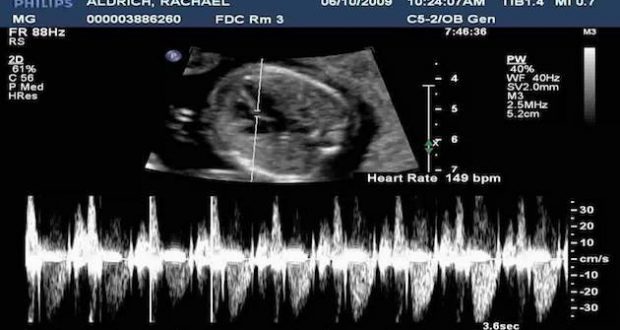A new pro-life law in Texas has gone into effect after the Supreme Court refused to consider a motion to block it. Senate Bill 8 prohibits doctors from performing abortions if a heartbeat is detected. Only if a heartbeat is not detected may the doctor perform the abortion.
The legislation has a unique enforcement clause. It forbids state officials from enforcing it, but rather allows private citizens to file lawsuits against doctors, abortion clinics like Planned Parenthood and anyone involved in the abortion of a child with a heartbeat. Notably, these private citizens do not need to have any connection to anyone involved in a specific abortion. South Texas College of Law professor Josh Blackman has explained that the advantage of this approach is that “Planned Parenthood can’t go to court and sue Attorney General [Ken] Paxton like they usually would because he has no role in enforcing the statute. They have to basically sit and wait to be sued.”
If someone who brings a lawsuit prevails, they will be awarded at least $10,000 for each abortion that the defendant performed or helped with.
State Sen. Bryan Hughes, a Republican who sponsored the bill, has called it “the most powerful pro-life legislation in Texas history” and has said it will serve as a model for the country.
The Republican-controlled legislature passed the act earlier this year. It was then signed by Gov. Greg Abbott.
Over 20 abortion providers, such as Planned Parenthood, sued state officials and district judges in July, alleging the law was unconstitutional in light of the Supreme Court’s 1973 decision in Roe v. Wade.
They asked the court to stop the law from taking effect.
A district court was going to hold a hearing on the matter on Monday, but an appeals court ordered it canceled. That prompted an emergency appeal to the Supreme Court.
“Nearly fifty years ago, this Court held that Texas could not ban abortion prior to viability,” plaintiffs wrote (pdf), referring to Roe v. Wade. “Yet, absent intervention from this Court, in less than two days, on Wednesday, September 1, Texas will do precisely that. This new Texas law will ban abortion starting at six weeks of pregnancy, which is indisputably prior to viability and before many people even know they are pregnant.”
Some 85 to 90 percent of women who get abortions in Texas are at least six weeks into pregnancy with many having viable fetuses.
The appeal went to Justice Samuel Alito due to court assignments.
Texas Attorney General Ken Paxton, a Republican, and other attorneys for the defendants urged Alito not to intervene.
A lawyer for Mark Lee Dickson, the director of Right to Life of East Texas, said in a separate filing (pdf) that the abortion providers “cannot show that an injunction against the named defendants will prevent the irreparable harms that they allege, and an injunction that extends beyond the defendants would be patently unconstitutional.”
Alito did not rule on the matter, according to the public docket. That meant the law went into effect at midnight.
“Texas is now the first state ever to enforce a heartbeat law,” Texas Right to Life, a pro-life group, said in a statement.
Texas Right to Life (TRTL) has set up a website where concerned Texans can anonymously report abortionists who commit abortions after finding a heartbeat or without testing for one.
Texas joins Missouri, Georgia, Ohio, and numerous others. State legislatures have passed at least 90 pro-life laws restricting the abortion in 2021 so far, finds a report released this month from the Guttmacher Institute.
–Lee Hartman | Metro Voice
 Metro Voice News Celebrating Faith, Family & Community
Metro Voice News Celebrating Faith, Family & Community









